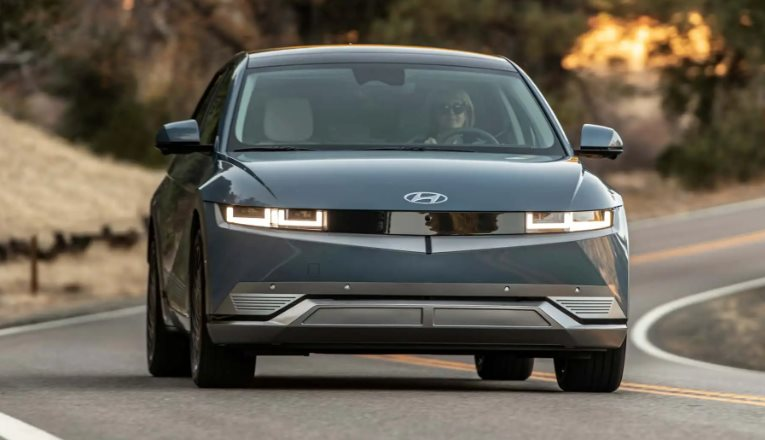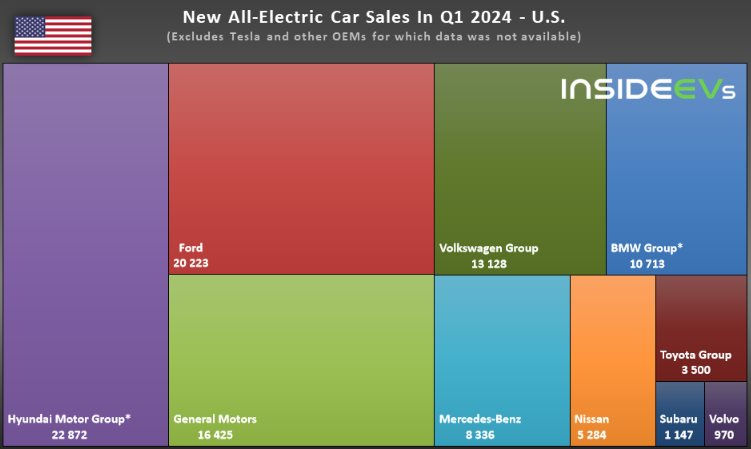
Illustrative photo
According to Inside Evs, Hyundai Motor Group’s EV sales in the US surpassed Ford and GM in the first quarter of 2024. The South Korean automaker is now the leading legacy automaker in terms of pure electric vehicle sales behind only Tesla.
The report includes 11 legacy automakers, namely: BMW Group (BMW and Mini, excluding the Mini Cooper SE), Ford Motor Company (Ford and Lincoln), General Motors (BrightDrop, Cadillac, Chevrolet, GMC), Hyundai Motor Group (Hyundai, excluding the Hyundai Kona Electric, Kia and Genesis), Mazda, Mercedes-Benz (excluding the van division), Nissan, Subaru, Toyota Group (Toyota and Lexus), Volkswagen Group (Volkswagen, Audi and Porsche), and Volvo.

EV sales of legacy automakers in the US in Q1 – excluding Tesla
The list does not include brands like Rivian, Polestar, Lucid, Fisker and VinFast as most of them do not report sales figures on a country or regional basis.
As such, the 11 automakers listed delivered over 102,000 fully electric cars in Q1 2024, up roughly 18% year-over-year.
Behind Tesla, only two automakers managed to exceed 20,000 units – Hyundai Motor Group with an estimated 22,872 units and Ford with 20,223 units. Hyundai’s tally is actually higher, as it does not include the Hyundai Kona.
General Motors was third with 16,425 deliveries, ahead of Volkswagen Group (13,128 units). BMW Group rounded out the top five with 10,713 units. Rivian likely sold over 10,000 EVs in the quarter as well, as its global figure for Q1 was 13,588 and the US is Rivian’s largest market, but that remains unconfirmed.
Overall, 2024 is shaping up to be a three-horse race between Hyundai Motor Group, Ford and General Motors. The competition could get particularly fierce as increasing volume typically requires significant discounting or lease incentives.
Meanwhile, in Q4 2023, the luxury brands from Germany held the highest EV market share: Mercedes-Benz (excluding vans) at 12.5%, followed by BMW Group (12.8%) and Volkswagen Group (9.4%).
Hyundai Motor Group grew its share of the EV market to an estimated 6.0% (up from an average of 5.2% in 2023). The same goes for Ford at 4.0% (up from 3.6% on average in 2023). GM’s position has been relatively stable at a little under 3%.
Volvo saw the biggest drop, from 10.6% in the full-year 2023 to just 3.1% in Q1 2024. That’s because the company is waiting for the arrival of the new Volvo EX30 and Volvo EX90 models.
In Vietnam, Hyundai cars are the most popular, with sales in the first quarter of 2024 reaching 10,114 units, although this is still about 31% lower compared to the same period last year.
In its latest annual report, the International Energy Agency (IEA) expects 2024 to be a record year, as global electric car sales increased by 25% in Q1 2024 compared to the same period in 2023.












